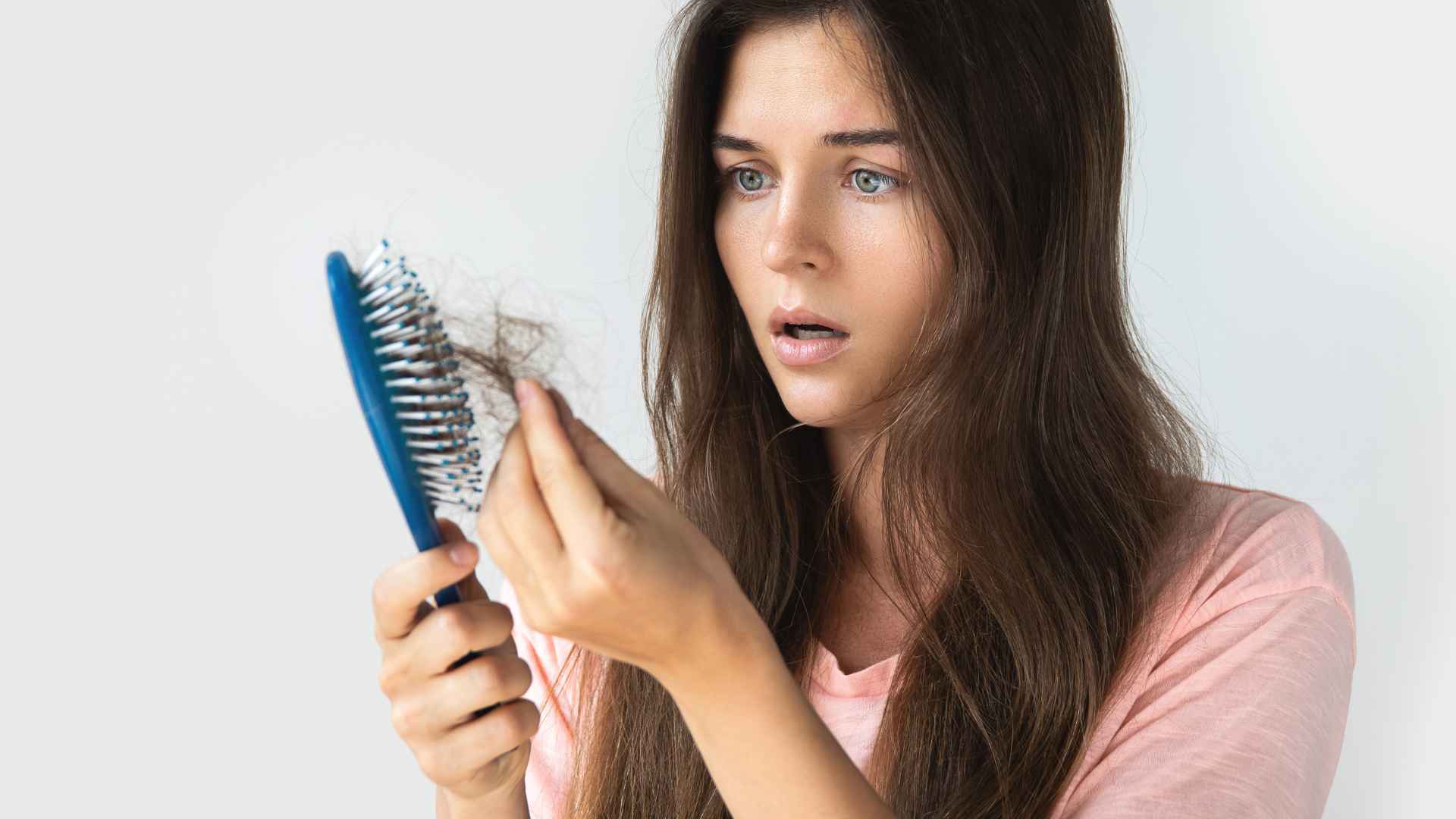Hair loss is a concern that affects many people worldwide, and there are numerous beliefs and theories surrounding its causes. One common belief is that stress can lead to hair loss. It’s a notion that has gained popularity over time, leaving many individuals worried about the impact of stress on their locks.
In this article, we will delve into the topic of stress-related hair loss and examine the relationship between stress and hair loss to separate fact from fiction. By exploring the evidence and scientific understanding surrounding this issue, we aim to provide you with a clear understanding of how stress truly affects hair health. Let’s dispel the myths and uncover the truth about stress-induced hair loss.
Understanding the Hair Growth Cycle
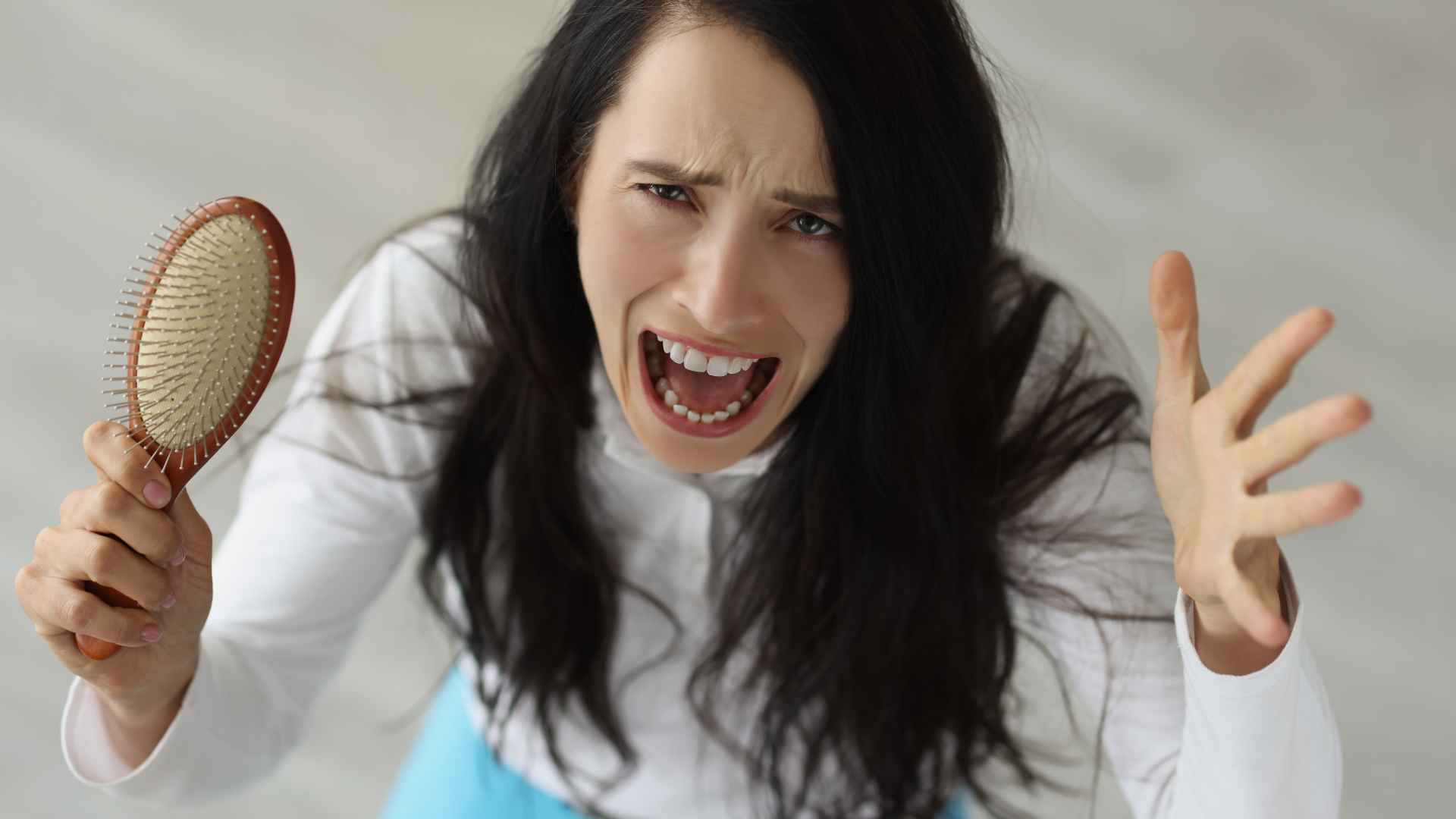
To understand how stress can affect hair loss, it is important to first grasp the natural cycle of hair growth. Hair goes through a continuous cycle consisting of three main phases:
- Anagen Phase (Growth Phase): This is the active phase where hair follicles produce new hair. It typically lasts between two to six years, and around 85% to 90% of the hair on the scalp is in this phase at any given time. The length of the anagen phase determines the maximum potential length of hair.
- Catagen Phase (Transition Phase): This is a brief transitional phase that lasts for about two to three weeks. During this phase, the hair follicle shrinks, and hair growth stops. It is a preparatory stage for the next phase.
- Telogen Phase (Resting/Shedding Phase): This is the resting phase of the hair follicles, which lasts approximately two to three months. About 10% to 15% of hair is in this phase at any given time. During the telogen phase, the hair follicles remain dormant, and the old hair is shed to make room for new hair growth.
Now, let’s explore how stress can disrupt the hair growth cycle and potentially lead to hair loss.
Experiencing significant stress can trigger a condition known as telogen effluvium. This occurs when stressors push a large number of hair follicles into the telogen (resting) phase prematurely. As a result, more hair follicles enter the shedding phase simultaneously, leading to increased hair loss.
Stress can disrupt the normal balance of the hair growth cycle by signaling the body to shift hair follicles into the telogen phase prematurely. This disruption affects the synchronization of hair growth, leading to excessive shedding. However, it’s important to note that hair loss due to stress is often temporary and reversible.
Once the underlying stress is alleviated or managed effectively, the hair growth cycle usually resumes its normal pattern. Hair follicles re-enter the anagen phase, and new hair growth replaces the shed hair over time. In most cases, the hair regains its normal density and thickness as the cycle returns to its regular rhythm.
It is worth noting that chronic or prolonged stress can potentially have a more substantial impact on the hair growth cycle, leading to more noticeable hair loss. In such cases, it is advisable to seek professional advice to address both the underlying stress and its effects on hair health.
In summary, stress can disrupt the hair growth cycle, pushing more hair follicles into the shedding phase and potentially leading to temporary hair loss. However, with proper stress management and addressing the underlying causes, the hair growth cycle can normalize, and hair loss due to stress is usually reversible.
The Physiology of Stress and How It Affects Hair Loss
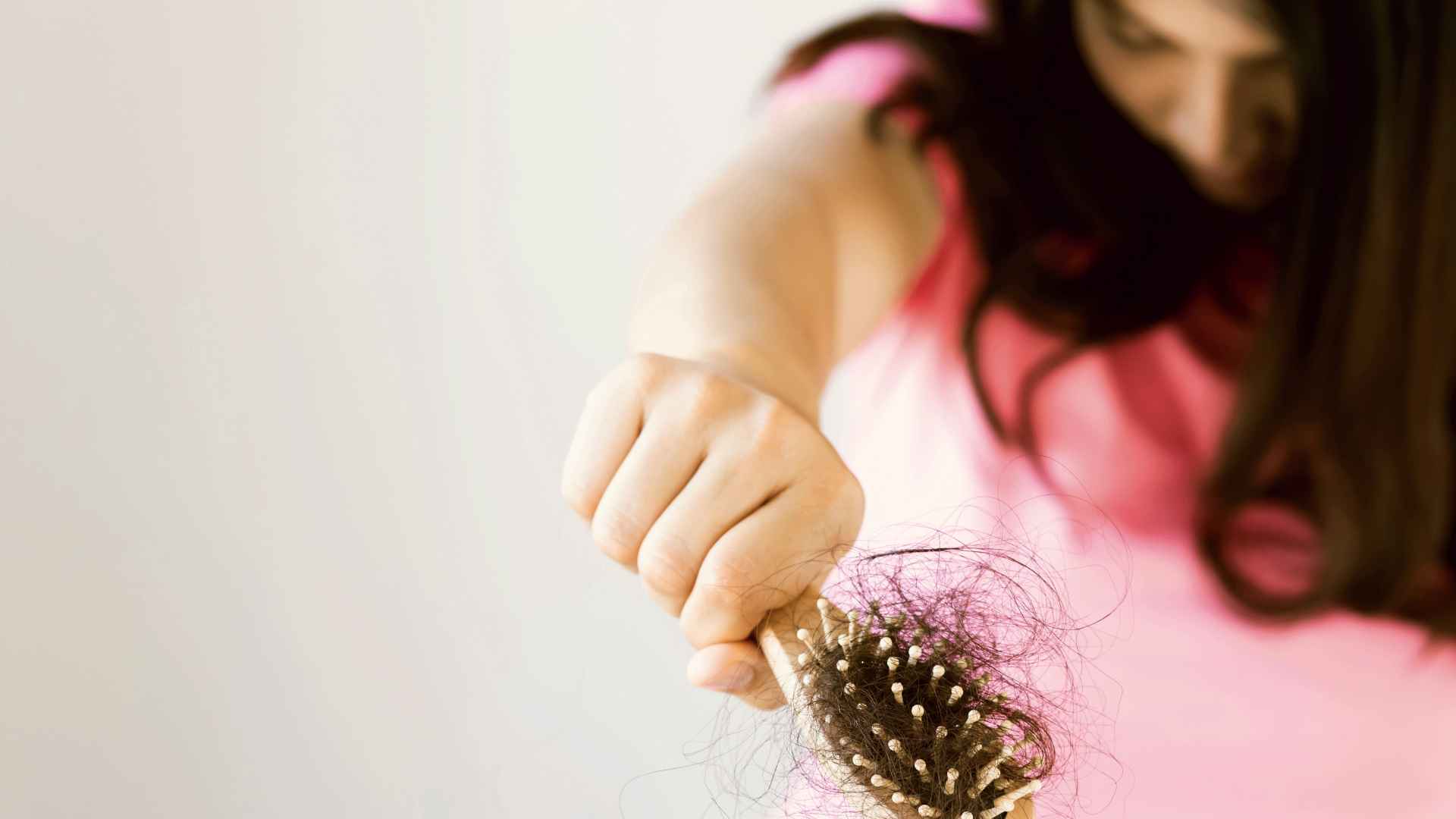
When we experience stress, whether it’s from work, personal issues, or other factors, our body responds by activating the stress response system. This involves the release of various hormones, with cortisol being a key player.
Cortisol is a hormone released by the adrenal glands in response to stress. It helps regulate the body’s response to stress and plays a role in various physiological processes. However, prolonged or chronic stress can lead to elevated cortisol levels that can have negative effects on the hair growth cycle.
Elevated cortisol levels can disrupt the normal functioning of hair follicles and the hair growth cycle. Here’s how it happens:
- Shortening of the Anagen Phase: Elevated cortisol levels can cause a shift in the balance of hormones involved in hair growth, leading to a shorter anagen (growth) phase. With a shortened growth phase, the hair has less time to reach its maximum length and thickness.
- Premature Transition to Telogen Phase: Cortisol can also accelerate the transition of hair follicles from the anagen phase to the telogen (resting) phase. This premature transition results in more hair follicles entering the shedding phase simultaneously, leading to increased hair loss.
- Delayed Hair Regrowth: When stress and cortisol levels are high, the hair follicles may take longer to re-enter the anagen phase and initiate new hair growth. This delayed regrowth can contribute to the perception of hair thinning or a decrease in overall hair density.
The type of hair loss caused by stress is commonly referred to as telogen effluvium. Telogen effluvium is characterized by excessive shedding of hair due to the disruption of the hair growth cycle, particularly an increased number of hair follicles entering the resting phase.
It’s important to note that stress-related hair loss, including telogen effluvium, is often temporary. Once stress levels decrease or are effectively managed, the hair growth cycle usually returns to its normal pattern, and hair regrowth occurs.
In cases of persistent or severe stress-related hair loss, it is advisable to consult a healthcare professional or dermatologist for proper evaluation, diagnosis, and guidance on stress management and potential treatments.
In summary, stress triggers the release of cortisol and other stress hormones, which can disrupt the hair growth cycle by shortening the anagen phase, accelerating the transition to the telogen phase, and delaying hair regrowth. This disruption, known as telogen effluvium, often leads to temporary hair loss.
Telogen Effluvium as a Type of Hair Loss Characterized by Excessive Shedding of Hair
Telogen effluvium is a type of hair loss characterized by excessive shedding of hair from the scalp. It occurs when a significant physical or emotional stressor disrupts the normal hair growth cycle, specifically pushing a larger number of hair follicles into the telogen (resting) phase.
Telogen effluvium is typically triggered by a major stressor, which can include physical trauma, emotional stress, childbirth, surgery, severe illness, rapid weight loss, or even certain medications. The exact mechanism behind telogen effluvium is not fully understood, but it is believed that the stressor affects the hair follicles, leading to a higher proportion of follicles entering the resting phase.
It is important to note that telogen effluvium does not occur immediately after the stressful event. Instead, it typically manifests a few months later. This delay is due to the hair growth cycle, which takes time for the affected hair follicles to enter the shedding phase.
The shedding associated with telogen effluvium is usually temporary, and the hair follicles eventually return to their normal growth cycle once the underlying stressor is resolved or managed effectively. In most cases, the hair regrows naturally, and the hair density and thickness return to normal over time.
If you suspect you are experiencing telogen effluvium or have concerns about your hair loss, it is advisable to consult with a healthcare professional or dermatologist. They can evaluate your specific situation, identify the potential underlying causes, and provide appropriate guidance and reassurance regarding your hair regrowth process.
In summary, telogen effluvium is a type of hair loss characterized by excessive shedding of hair triggered by a significant physical or emotional stressor. It typically occurs a few months after the stressful event and is usually temporary. Understanding the condition and seeking professional advice can help manage concerns and provide reassurance during the regrowth phase.
Different Factors Contributing to Stress-Related Hair Loss
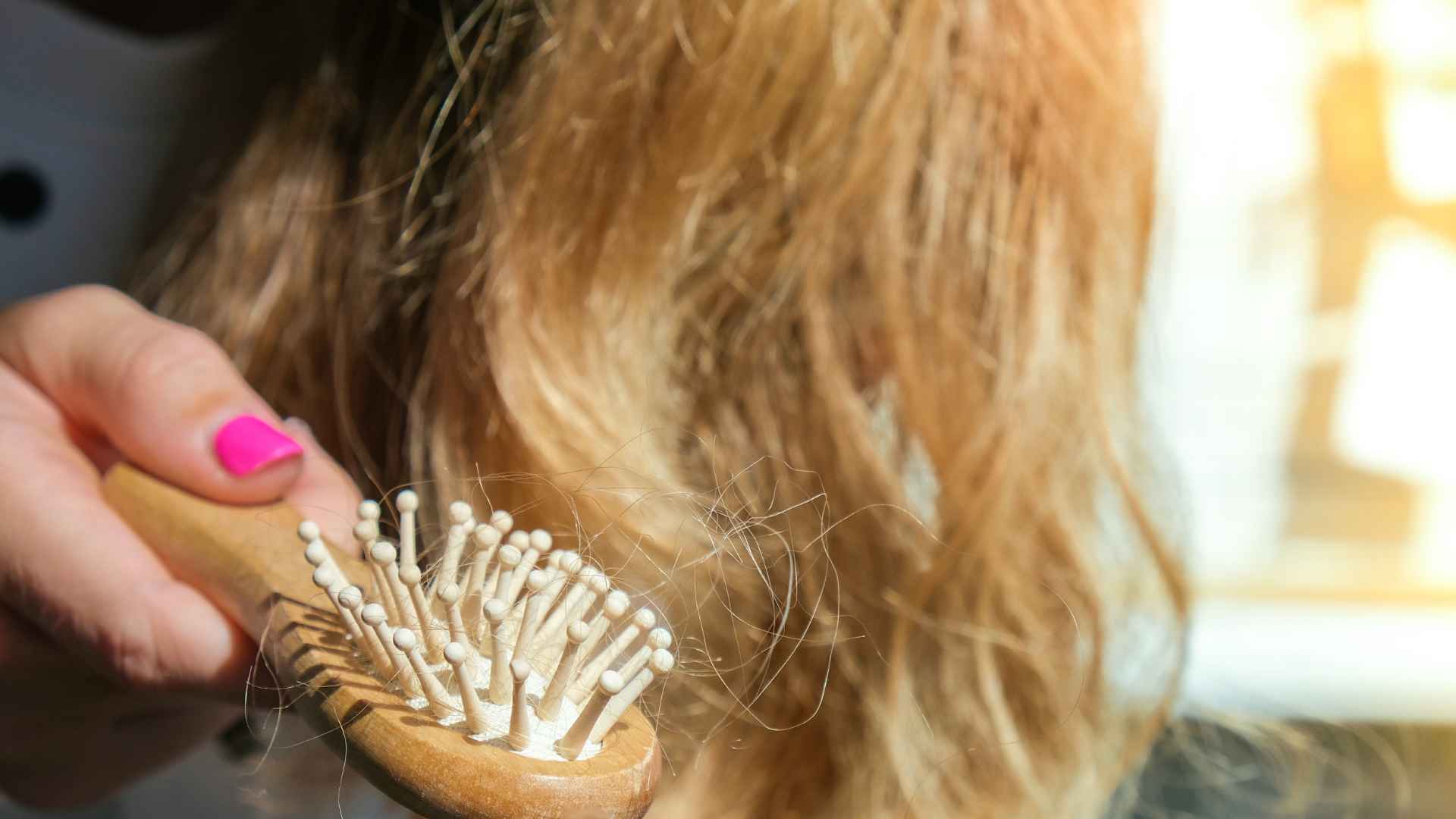
During periods of stress, various additional factors can contribute to hair loss, exacerbating the impact of stress on the hair growth cycle. Let’s explore some of these factors:
- Poor Nutrition: Stress can often lead to changes in eating habits and nutrient deficiencies. Inadequate intake of essential vitamins, minerals, and proteins necessary for healthy hair growth can weaken the hair follicles, resulting in increased hair shedding and decreased hair quality.
- Lack of Sleep: Chronic stress can disrupt sleep patterns and lead to inadequate sleep. Lack of proper sleep affects the body’s overall functioning, including the hair growth cycle. Sleep deprivation can disrupt hormone regulation and impair the nourishment of hair follicles, potentially contributing to hair loss.
- Compromised Immune Function: Prolonged stress can weaken the immune system, making the body more susceptible to infections and inflammatory conditions that can affect the scalp. Inflammation in the scalp can disrupt the hair growth cycle and contribute to hair loss.
- Hormonal Imbalances: Stress can influence hormone levels in the body, including cortisol, which we discussed earlier. Hormonal imbalances can impact the hair growth cycle and contribute to hair loss, particularly in individuals who may be predisposed to hormonal-related hair loss.
These factors, combined with stress, can create a negative cycle that further disrupts the hair growth cycle and increases the risk of hair loss. For example, poor nutrition and compromised immune function can weaken the hair follicles, making them more susceptible to the effects of stress and leading to increased shedding.
Addressing these factors is crucial in mitigating stress-related hair loss. By adopting a holistic approach to managing stress, such as improving nutrition, prioritizing sleep, and promoting overall wellness, you can positively impact the health of your hair.
A balanced and nutrient-rich diet, adequate sleep, regular exercise, stress-reducing techniques like meditation or yoga, and practicing self-care can help support a healthy hair growth cycle and minimize the impact of stress on hair health.
It is important to note that addressing these factors may require professional guidance from healthcare providers, such as nutritionists, sleep specialists, or therapists, to create a comprehensive plan that suits your specific needs.
In summary, poor nutrition, lack of sleep, compromised immune function, and hormonal imbalances are additional factors that can contribute to hair loss during periods of stress. These factors can exacerbate the impact of stress on the hair growth cycle. By addressing these factors through a holistic approach, you can help mitigate stress-related hair loss and promote overall hair health.
Practical Tips for Managing Stress and Promoting Hair Health
Managing stress effectively is crucial not only for overall well-being but also for promoting hair health. Here are some practical tips to help you manage stress and support healthy hair:
- Practice Relaxation Techniques: Incorporate relaxation techniques into your daily routine, such as deep breathing exercises, meditation, or mindfulness. These practices can help reduce stress levels and promote a sense of calm.
- Engage in Regular Exercise: Regular physical activity, such as walking, jogging, yoga, or other forms of exercise, can help reduce stress and promote overall well-being. Exercise boosts endorphin levels, which are natural mood lifters.
- Prioritize Sufficient Sleep: Establish a consistent sleep routine and aim for the recommended 7-8 hours of quality sleep each night. Good sleep helps regulate stress hormones and supports the body’s overall health and healing processes.
- Seek Support from Loved Ones or Professionals: Reach out to trusted friends, family, or professionals for emotional support. Sharing your feelings and experiences with others can help alleviate stress and provide different perspectives and guidance.
- Maintain a Balanced Diet: Consume a well-balanced diet rich in essential nutrients to support optimal hair health. Include foods high in vitamins (such as vitamin A, C, and E), minerals (like iron, zinc, and selenium), and proteins. A nutritious diet nourishes the hair follicles and promotes healthy hair growth.
- Incorporate Self-Care Activities: Dedicate time each day for self-care activities that you enjoy, such as reading, listening to music, taking a bath, practicing hobbies, or spending time in nature. These activities help reduce stress levels and promote relaxation.
- Practice Stress-Reducing Techniques: Explore stress-reducing techniques like journaling, engaging in creative outlets, or practicing aromatherapy. Find what works best for you in managing stress and make it a regular part of your routine.
Remember, managing stress is a continuous process, and it may take time to find the techniques and strategies that work best for you. Be patient and kind to yourself as you navigate stress management and hair health.
Incorporating these tips into your lifestyle can help reduce stress levels, promote a healthier hair growth cycle, and enhance overall well-being. If you find that stress is significantly affecting your daily life or hair health, consider seeking support from healthcare professionals, such as therapists or counselors, who can provide additional guidance and strategies.
In conclusion, managing stress effectively is essential for promoting hair health. By practicing relaxation techniques, engaging in regular exercise, getting sufficient sleep, maintaining a balanced diet, and incorporating self-care activities, you can minimize the impact of stress on your hair and nurture overall well-being.
Seeking Professional Help
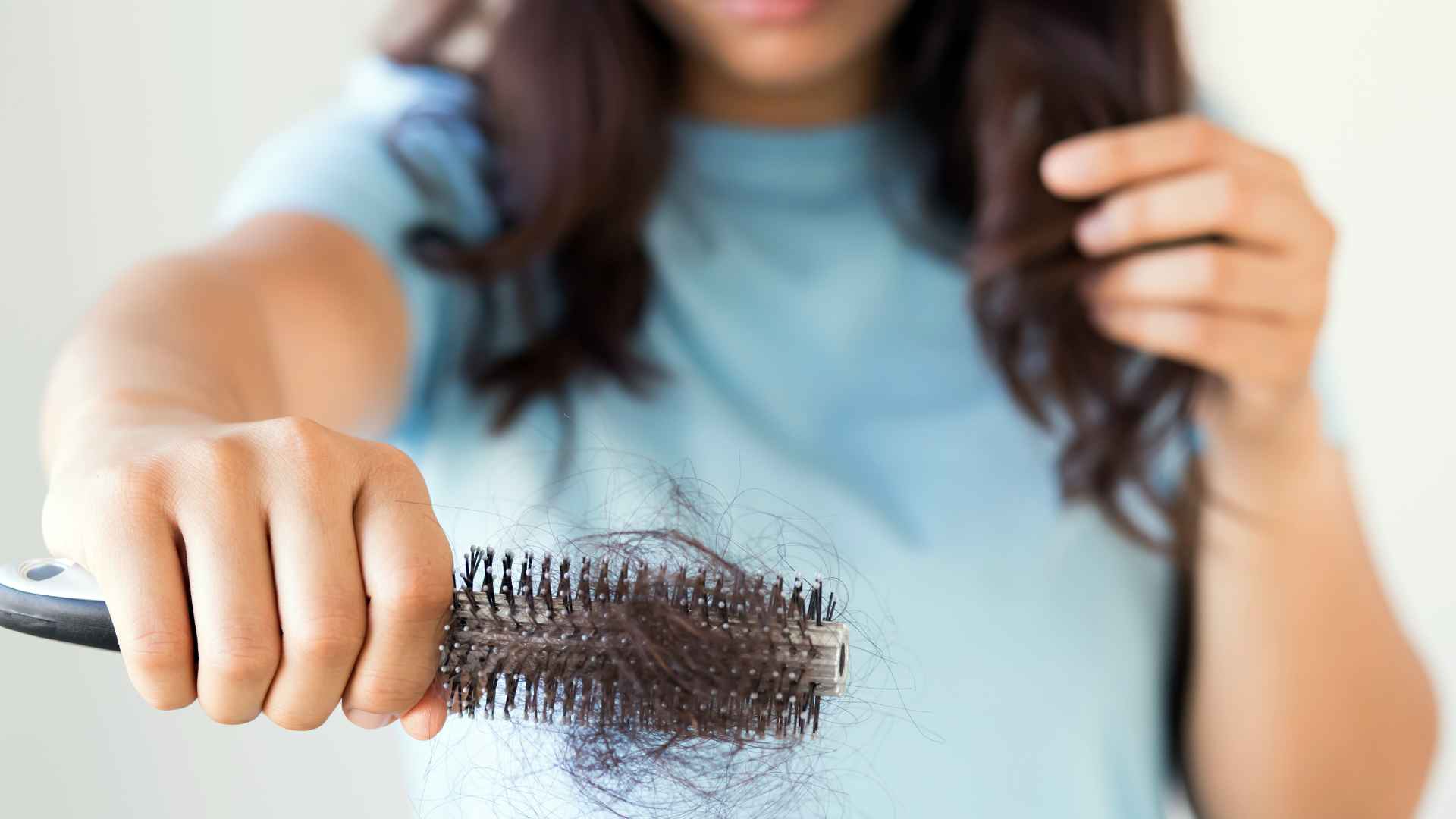
If you are experiencing significant hair loss due to stress or have concerns about your hair health, it is advisable to consult a healthcare professional. A professional can provide a comprehensive evaluation, diagnose the underlying cause of your hair loss, and recommend appropriate treatments or interventions.
Here’s why seeking professional help is important:
- Accurate Diagnosis: A healthcare professional, such as a dermatologist or trichologist, can examine your scalp and hair thoroughly, assess your medical history, and perform any necessary tests to determine the underlying cause of your hair loss. This ensures an accurate diagnosis and appropriate treatment recommendations.
- Personalized Treatment: Each case of stress-related hair loss may have different contributing factors. A healthcare professional can provide personalized advice and treatment options tailored to your specific needs. They can consider various factors such as the severity of hair loss, your overall health, and any underlying conditions to recommend the most effective interventions.
- Addressing the Root Cause: Stress-related hair loss is often a result of an underlying stressor. While managing the symptoms of hair loss is important, addressing the root cause of stress is crucial for long-term management. A healthcare professional can guide you in identifying and managing the stressors contributing to your hair loss, allowing you to develop effective stress management strategies.
- Access to Specialized Treatments: In some cases, stress-related hair loss may require specialized treatments or interventions. A healthcare professional can offer access to treatments such as topical medications, laser therapy, or scalp treatments that can aid in hair regrowth and promote overall scalp health.
Remember, hair loss due to stress is often temporary and reversible. With the right professional guidance, stress management strategies, and appropriate interventions, you can navigate through the hair loss phase and support healthy hair regrowth.
In conclusion, if you are experiencing significant hair loss due to stress or have concerns about your hair health, it is important to consult a healthcare professional. They can provide an accurate diagnosis, recommend personalized treatments, and help address the root cause of stress to effectively manage stress-related hair loss. Seeking professional help ensures that you receive the necessary support and guidance on your journey toward restoring hair health.
Watch This is how stress affects hair loss | Video
Top 5 FAQs and answers related to does stress cause hair loss
Does stress directly cause hair loss?
While stress can contribute to hair loss, it does not directly cause it. Stress can disrupt the hair growth cycle, leading to a condition called telogen effluvium, where a larger number of hair follicles enter the resting (telogen) phase and eventually shed. However, hair loss due to stress is usually temporary and reversible.
How does stress contribute to hair loss?
Stress triggers physiological changes in the body, including the release of stress hormones like cortisol. Elevated cortisol levels can disrupt the normal hair growth cycle, leading to excessive shedding of hair. This disruption is commonly known as telogen effluvium and is often associated with periods of intense stress.
Is stress-related hair loss permanent?
No, stress-related hair loss is usually temporary. Once the underlying stress is managed or resolved, the hair growth cycle typically returns to normal, and hair regrowth occurs. It may take several months for hair to fully recover, but in most cases, the hair density and thickness return to normal over time.
Can reducing stress levels prevent hair loss?
Managing stress effectively can help minimize the impact on hair loss. By practicing stress-reducing techniques, engaging in relaxation exercises, seeking support from loved ones or professionals, and incorporating self-care activities, you can reduce stress levels. However, if there are underlying factors contributing to hair loss, addressing those factors is also important for effective management.
When should I seek professional help for stress-related hair loss concerns?
If you are experiencing significant hair loss due to stress or if you have concerns about your hair health, it is advisable to consult with a healthcare professional or dermatologist. They can provide a proper diagnosis, assess the underlying causes, and recommend appropriate treatments or interventions based on your specific condition.
Conclusion
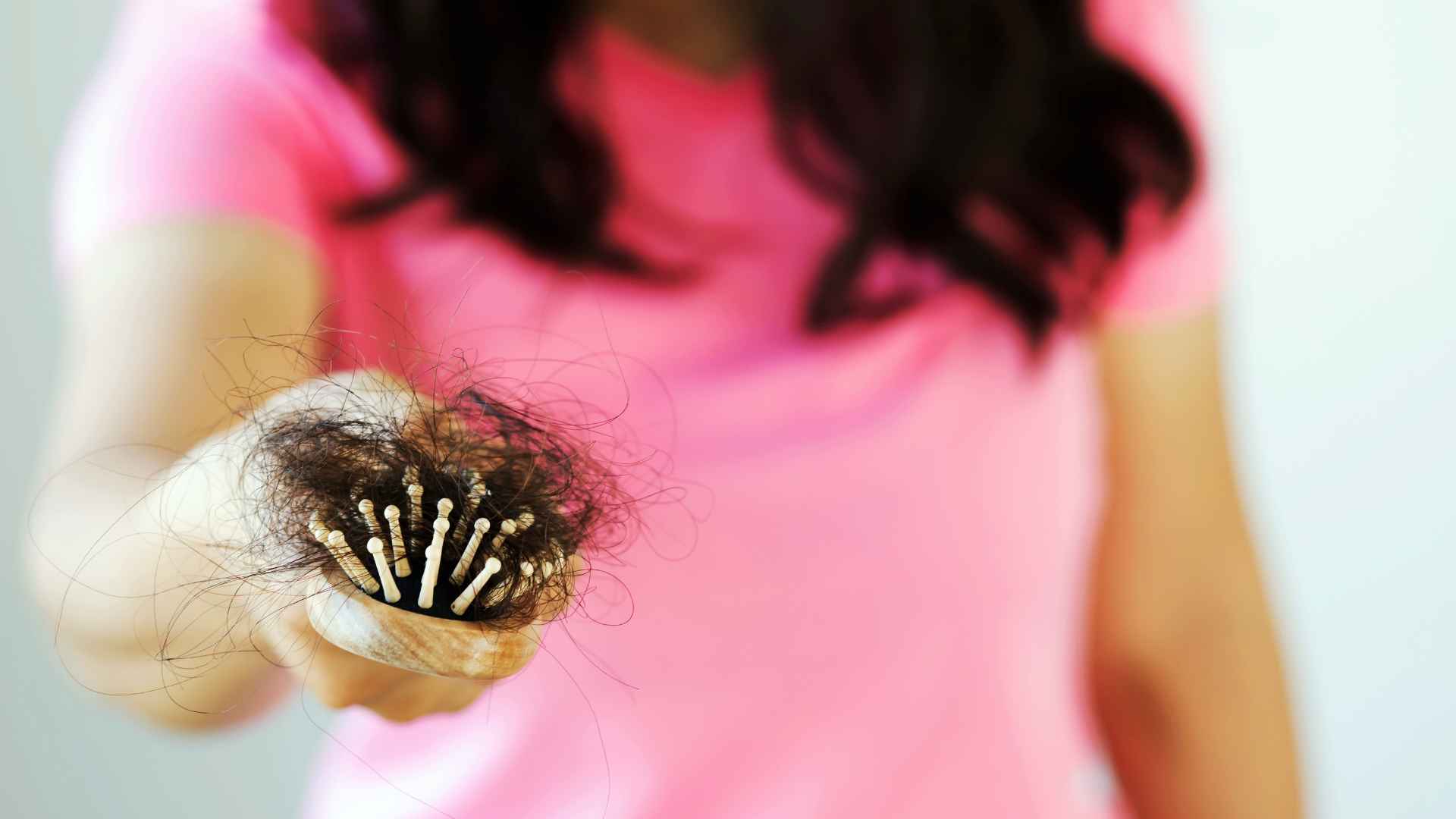
In conclusion, let’s recap the main points discussed in the article:
- Stress can contribute to hair loss by disrupting the hair growth cycle, often resulting in a condition called telogen effluvium.
- Hair loss due to stress is usually temporary and reversible. Once the underlying stress is managed or resolved, the hair growth cycle typically returns to normal, and hair regrowth occurs.
- Stress-related hair loss is not directly caused by stress alone but rather the physiological changes and hormone imbalances triggered by stress.
- It is important to prioritize stress management techniques, such as practicing relaxation exercises, engaging in regular exercise, getting sufficient sleep, and seeking support from loved ones or professionals.
- A holistic approach that includes maintaining a balanced diet, incorporating self-care activities, and addressing underlying factors contributing to stress-related hair loss is crucial for promoting hair health.
- If you have concerns about hair loss or persistent stress-related symptoms, it is advisable to consult a healthcare professional or dermatologist for a proper evaluation and personalized guidance.
Remember, managing stress effectively and adopting a comprehensive approach to hair health can help minimize the impact of stress on hair loss. With proper care, support, and stress management techniques, you can navigate through stressful periods while maintaining healthy, vibrant hair.
Please share this Does Stress Cause Hair Loss and Will It Grow Back? Guide with your friends and do a comment below about your feedback.
We will meet you on next article.
Until you can read, Does Wearing a Hat Cause Hair Loss? Fact from Fiction Guide
